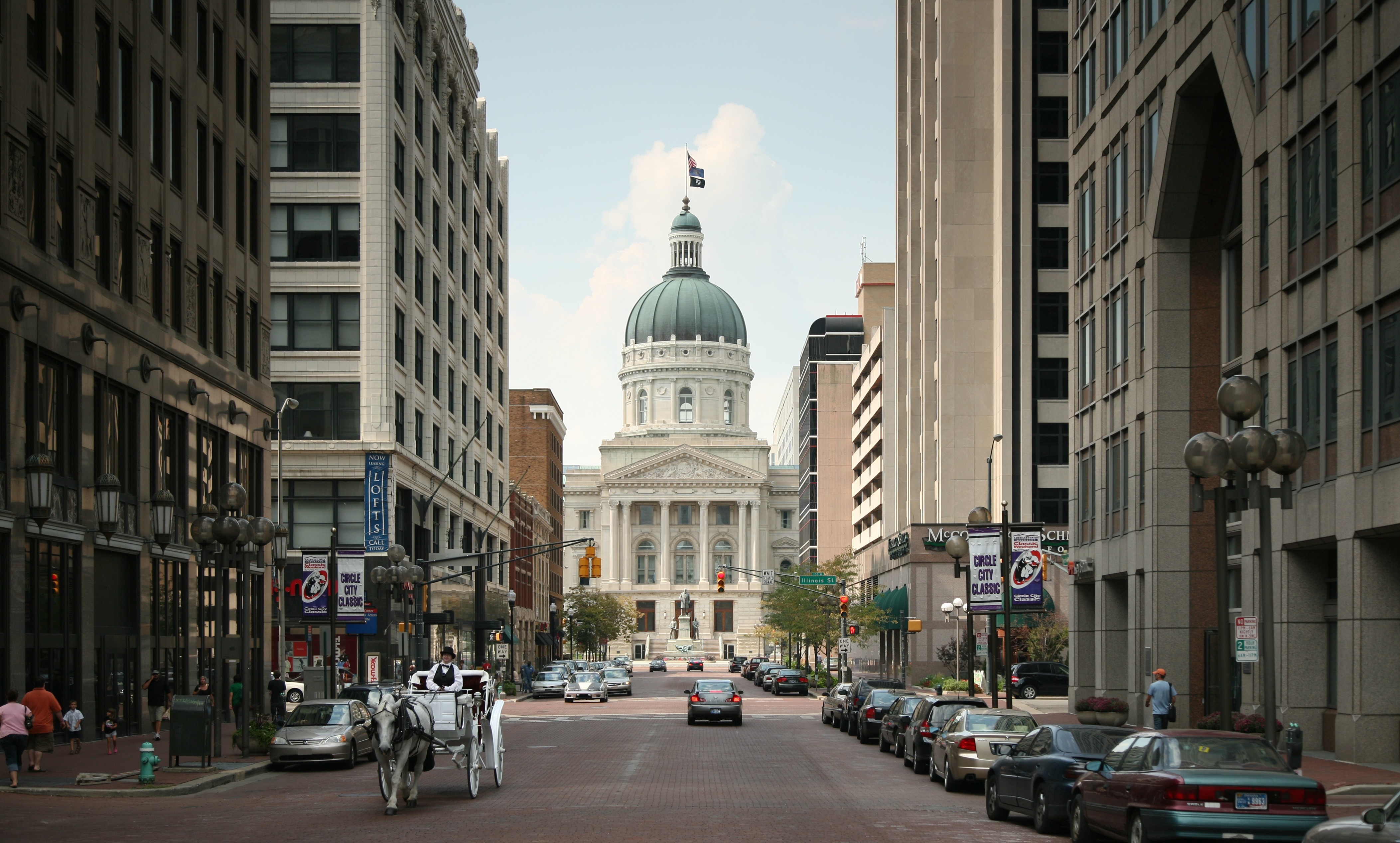“Two steps forward, one step back.” So goes the old adage of social progress, and so goes American LGBTQ rights. While the past few years have seen legal and cultural improvements for marriage equality, the past few weeks have seen Indiana’s SB 101, which allows companies to turn away LGBTQ identifying customers on the basis of religious liberties. Governor Pence argues that the negative press facing the state law is ungrounded and misdirected, especially because it is no different than similar legislation in other states. The key difference is that, unlike some other states that have variations of this law, Indiana did not classify sexual orientation as a protected class under state civil rights laws until Governor Pence signed a recent “fix” to the law quite recently.
However, LGBTQ Hoosiers may have more to fear than the law itself. Through intense media spotlight, “Indiana” has become a buzzword for anti-gay, backwards and discriminatory sentiment and the latest symbol in the ongoing crusade for sexual orientation equal rights.
Well-meaning public figures are now opposing Indiana as a whole to take a stance against the anti-gay law. Salesforce.com CEO Marc Benioff cancelled all programs that would require customers and employees to travel to Indiana. Wilco, a Chicago-based band, cancelled their scheduled tour date in Indianapolis. George Takei wrote a piece for MSNBC urging for a boycott of Indiana “not only to send a clear message to Indiana, but also to help stop the further erosion of our core civil values in other parts of this country.” The entire state of Connecticut is even boycotting Indiana; soon after the Indiana bill was signed into law, Connecticut Governor Dan Malloy signed an executive order barring state-funded travel to Indiana in protest. The Center for American Progress estimates that as a result of the bill, Indiana could lose as much as $256.4 million
However, in the march towards equal rights, a statewide boycott accomplishes the opposite of its goals. Instead of directing outrage over the law towards Indiana state government officials like Governor Pence and the state legislators who authored and supported the bill, groups are boycotting both the entire state of Indiana and businesses that use the new “religious liberty” afforded them by the bill to discriminate. Such outrage and boycotts indiscriminately affect all Indiana businesses and citizens, even those who oppose it.
A group of LGBTQ-friendly Indiana-based indie record labels and music businesses, for instance, called the boycott “well-intended” but “misguided.” They argue that artists could make better positive change by coming to the state and spreading positive messages. Indiana’s Feminist Collective, a group that self-identifies as “individuals acting in unity to bring positive change for all Hoosiers, regardless of what oppressions they face,” is expressing concern about the possible effects the nation’s reaction to the law might have on innocent, pro-equal rights, Indiana citizens. While members of the group are adamantly against the law, they are cautious about results that the “Boycott Indiana” movement will have and call people to “boycott smart.”
In an article posted to their website, one Indy Feminist draws a line between boycotting “the groups, businesses, and political machines that brought us to this awful place” and boycotting the people of Indiana, as there is concern that a complete, state-wide boycott will harm those who need the most help right now: LBGTQ Indianans. The article includes a long list of groups committed to fighting the inequality supported by the law, including Indiana Youth Group, the Indiana ACLU, the League of Women Voters of Indiana and many others.
While statewide boycotts often cost states millions of dollars, they can also ultimately be the most effective way to enact significant change. When Arizona failed a bill to honor Martin Luther King Day in 1986, the National Football League changed its plan to have Arizona host the Super Bowl, leading the state to lose an estimated $200 million. Following several years of business’ refusal to visit or invest in Arizona, they accepted the holiday. Further, after Arizona passed a controversial anti-immigration law in 2010, the state lost about $141 million in tourism.
 For citizens of Indiana, who obviously cannot participate in an encompassing boycott of their own state, there is another solution. Indianapolis resident Josh Driver has launched a local grassroots movement called the Open for Service campaign. Businesses that want to advertise that they do not discriminate based on any characteristic—race, religion, sexual orientation or gender identity—can buy a $10 sticker and be listed in a directory of non-discriminatory businesses. While Driver insists that the movement is not meant to target businesses that do not want to participate, he does see Open for Service as having the potential to “dictate the market” by supporting non-discriminatory businesses.
For citizens of Indiana, who obviously cannot participate in an encompassing boycott of their own state, there is another solution. Indianapolis resident Josh Driver has launched a local grassroots movement called the Open for Service campaign. Businesses that want to advertise that they do not discriminate based on any characteristic—race, religion, sexual orientation or gender identity—can buy a $10 sticker and be listed in a directory of non-discriminatory businesses. While Driver insists that the movement is not meant to target businesses that do not want to participate, he does see Open for Service as having the potential to “dictate the market” by supporting non-discriminatory businesses.
However, targeted protests can have unintended consequences. After the owner of an Indiana pizzeria, Memories Pizza, went on television to declare that she would refuse to cater gay weddings, a boycott of the restaurant was so effective that the restaurant nearly closed. Until, that is, conservatives found out about the boycott and donated over $800,000 to the owners of the restaurant. While targeted boycotts are the most effective way to make sure that only those complicit in harmful behavior get hurt, they also present an easier opportunity to adversaries to step in and block their efficiencies.
While statewide boycotts temporarily hurt everyone in the state, they might be the only way to effect long-term change. Recognizing the difference between interstate boycotts and intrastate boycotts is important in determining how policy change eventually occurs. Allowing citizens of other states to influence policy through economic incentives prevents the state’s residents from determining the laws under which they live. In the case of Indiana, Connecticut’s boycott allows the residents of Connecticut to determine policy in a different state. Regardless of Hoosier’s political views, when non-Indiana citizens decide Indiana policy, the economic losses are secondary impacts.
